Spite can be the greatest motivator, for better or worse. On the upside, it can push a person to do their best and outdo the competition. But on the other hand, it can also drive so much hatred that it clouds judgment.
A woman despised her new husband’s ex-wife, all because of a misunderstanding she failed to clear up. She harbored so much resentment that things got ugly. Caught in the crossfire were the kids, who now refused to formally acknowledge her as their second mother.
This is quite a story told by the first wife, who admits she is “crazy happy” with the recent turn of events.
A minor incident can trigger a person so much that they end up harboring deep resentment

Image credits: Ana Curcan / unsplash (not the actual photo)
A woman experienced this from her ex-husband’s new wife
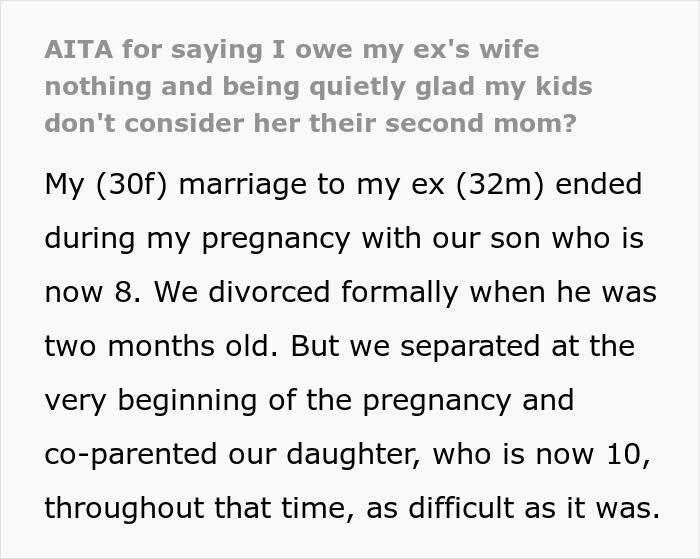



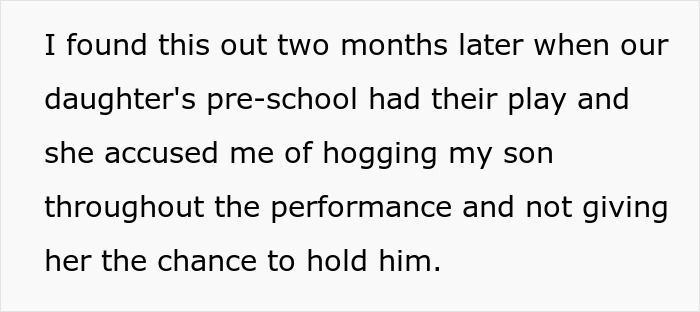

Image credits: Kelli McClintock / unsplash (not the actual photo)
Things got so out of control that Child Protective Services had to be involved at one point






Image credits: Karolina Grabowska / unsplash (not the actual photo)
The ex-husband also intervened and tried to increase child custody in his favor






Image credits: Getty Images / unsplash (not the actual photo)
The messy situation caused the children to be distant from their stepmom, which their mother admittedly celebrated in silence




Image credits: Sweeyloumom
Spiteful emotions are addictive and therefore difficult to quench

Image credits: Erik Mclean / unsplash (not the actual photo)
According to the author, the stepmom’s grievances began during a minor incident at a custody exchange. The latter could’ve approached her to sort things out like a sensible adult, but instead, she chose to hold a longstanding grudge that ultimately affected her relationship with her stepchildren.
However, it isn’t that easy. According to veteran clinical psychologist Leon F. Seltzer, spiteful acts are like addictive syndromes: they are difficult to extinguish.
“Although acting in such an impulsive manner can be heedless, brash, and foolhardy, at the moment, this behavior is tension-reducing and emotionally gratifying,” he wrote.
Seltzer adds that acting out of spite and holding that grudge is an act of ego gratification that may justify vengeful behavior as “righteous.” This is likely why the stepmom believed she was in the right and continued to behave unreasonably.
However, such behavior may also be a case of vindictive narcissism. According to licensed clinician and therapist Hailey Shafir, LCHMHCS, LCAS, CCS, some signs include harboring resentment, having a “get even” mentality, weaponizing information, and failing to work through conflict.
As you may have read multiple times on this website, trying to reason with a possible narcissist is a losing battle. It’s why most experts would advise limiting interactions and keeping a distance.
However, Shafir also recommends using leverage to protect yourself.
“Most people aren’t used to thinking this way, but it’s necessary when you’re dealing with someone who only thinks like this,” Shafir wrote for Choosing Therapy, stating that this is a strategy to approach if setting boundaries won’t work.
In this case, the author’s “leverage” would be her children and their non-relationship with their stepmother. She wasn’t using them for such a purpose, which is commendable, and no one can blame her for rooting against her ex-husband’s new wife.
The author answered readers’ questions to provide more context for her story


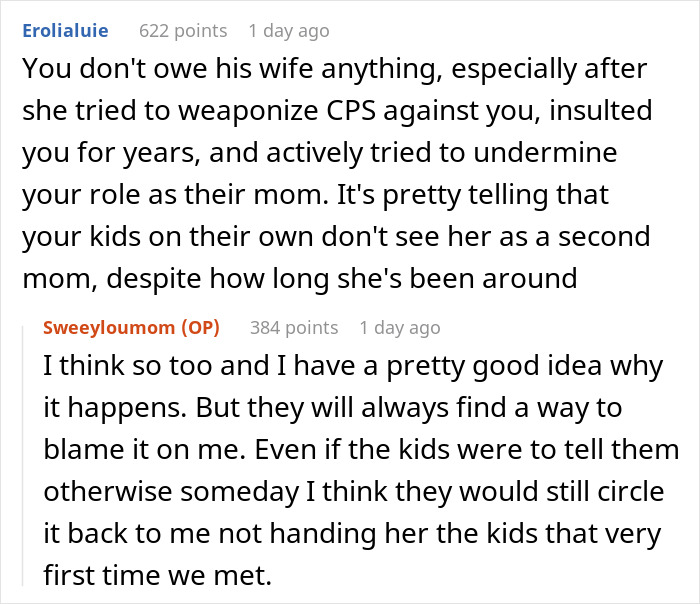


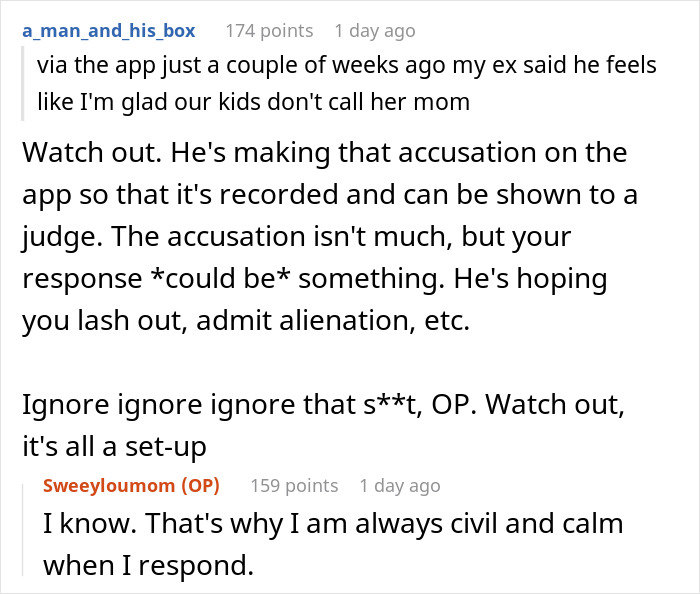
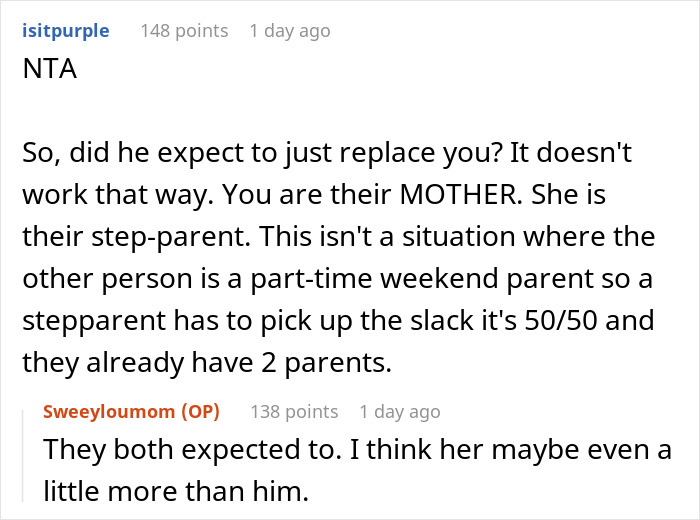






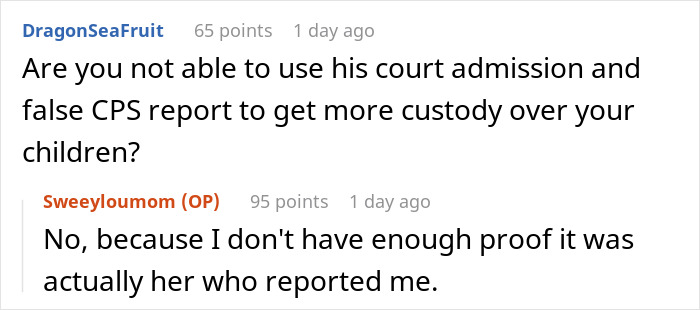
Most people sided with her, stating that the stepmother crossed a line



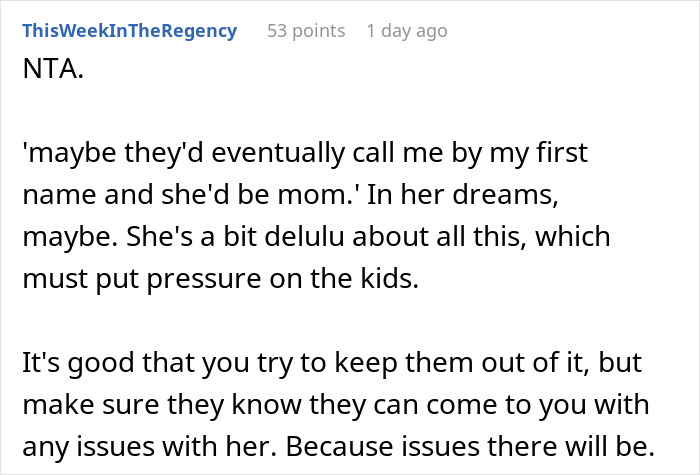

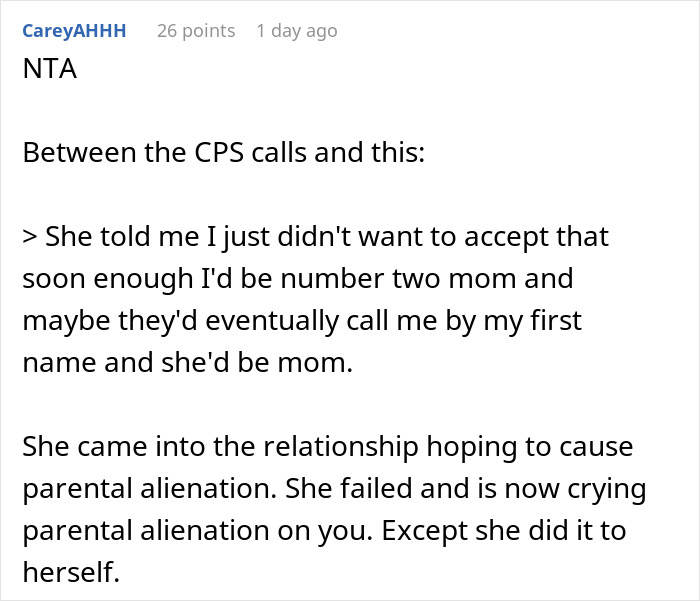






Others shared similar experiences









